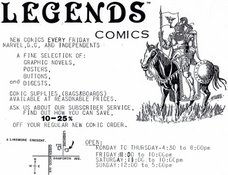This is it. Fantastic Four #611, the last issue of Fantastic Four written by Jonathan Hickman, hits stands this week.
I've been trying to think about what to say about this book since it was first announced back in the spring that Hickman would be leaving in October. A "top 5 favourite moments" list seemed cheap and somehow missed how deeply this book affected so many readers, including myself. So I read as many reviews as I could find, and they all seemed be saying the same thing: this book has heart. They almost unanimously conclude the emotional centre is the driving force behind the narrative.
"Hickman’s FF had more then a dead Galactus (issue #584) at its core, it has character growth.... Johnny Storm no longer is some hothead twenty-something, he’s a boy who comes to grip with immaturity through sacrifice. Reed Richards is attempting to solve the world’s problems, because he has that power, and is realizing what the difference between having knowledge and using it means."(via Chris Hart @ What Culture)
"I think something got broken on the inside of me, since last winter’s Fantastic Four #587, but broken in that way that ultimately ends in growth rather than limitation. Broken like how Hemingway meant it when he said, “The world breaks everyone and after many are strong in the broken places”. You’ll remember this issue well, you’ve heard about it, even if you never read a page of Fantastic Four your entire life. This was the issue that Johnny Storm faced unbelievable odds, the entirety of the Annihilation Wave, while trapped in the Negative Zone.(via Shathley Q @ Pop Matters)
"…Although the issue [FF#15] is titled “The One Where Power Pack Shows Up”, this issue is told from the point of view of Franklin Richards, the Mutant child of Reed Richards and Susan Storm-Richards, who is just now rediscovering his reality-warping powers. And also from the point of view of an omniscient narrator. There is a moment, about half the way through, where Franklin breaks through the Fourth Wall (well maybe not Fourth Wall, but whichever Wall separates the characters from the omniscient narrator). This moment shows a single mastery of the medium of comics. But also a mastery of the self that undoes the polluting intellectualism of Freud."
"What's not being talked about nearly enough is Jonathan Hickman's come down from one of the greatest runs in Marvel history. Not just talking Fantastic Four books but across the line, Hickman's time on the title(s) will be considered a new high water mark in modern superhero storytelling….(via Rich Johnston @ Bleeding Cool)
"Hickman has been winding down his books so elegantly, like a slow dance through an empty house, it's moving day and the lights are getting shut off, room by room. Hickman has been letting go of the characters that he's worked so hard on and wrapping things up."
 At risk of sounding even more hokey than these reviews, this little bit of comic book magic that Hickman and his group of artists he's worked infuse into Fantastic Four and the spinoff series, FF, doesn't happen very often, especially in mainstream books with well-known characters.
At risk of sounding even more hokey than these reviews, this little bit of comic book magic that Hickman and his group of artists he's worked infuse into Fantastic Four and the spinoff series, FF, doesn't happen very often, especially in mainstream books with well-known characters. Hickman's stories are filled with hope even when things look darkest. There are tender moments between family members. Love blossoming. The cast shares pain along the way.
And we had massive, fantastical, galactic stories that included Celestials and Galactus both dead and live, the N-Zone and infinity gauntlets, the new Light Brigade and Council of Reeds, the war of four cities, interstellar battles between legendary warrior races Kree and Inhumans, and the already classic death (and rebirth) of a favourite character. A new, spinoff series even launched during his tenure.
All these ingredients remind me in so many ways of Chris Claremont's heyday on Uncanny X-Men in the 1980s (even introducing the FF title reminded me a little of New Mutants). Most importantly, Hickman like Claremont allowed the characters to change and develop under his guidance. They matured. They grew. Readers often complain there are no ramifications that come out of the big cross-over event stories. Here, Hickman delivers exactly what those critical comic fans are looking for: personal stories with life-altering moments that will stay with the characters and change them forever.
It's sad to see his time on the book come to close, but it's so much better to end on a high note. And Hickman is saying good-bye most admirably.

